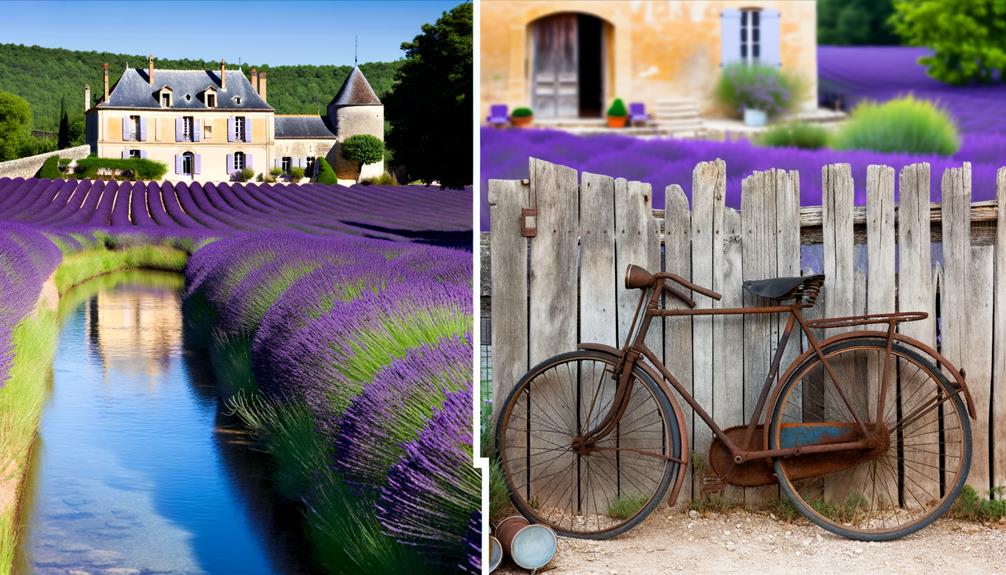Jacqueline Name Meaning and Origin
The name Jacqueline originates from the French form of Jacques and is derived from the Hebrew name Yaakov, meaning 'supplanter'. It bears significant historical and cultural weight, reflecting its medieval French roots and linguistic evolution from Latin through Old French.
The name spread across Europe, maintaining a presence through various historical periods and experiencing a 20th-century resurgence due to notable figures such as Jacqueline Kennedy Onassis. Common variations include 'Jackie' and 'Jacqui'.
Renowned for its association with elegance and sophistication, Jacqueline remains relevant in contemporary society. Further exploration reveals its profound historical significance and lasting appeal.

Key Takeaways
- Jacqueline originates from the French form of 'Jacques,' derived from the Hebrew name 'Yaakov' or 'Jacob.'
- The name means 'supplanter' or 'one who follows,' reflecting its Biblical roots.
- It became popular in medieval France and spread throughout Europe during the Renaissance.
- Modern usage includes variations like 'Jaqueline' in Spanish and 'Giacomina' in Italian.
- Jacqueline is associated with elegance, sophistication, and adaptability, maintaining cultural and historical significance.
Etymology of Jacqueline
The name 'Jacqueline' originates from the French feminine form of 'Jacques,' which itself is derived from the Hebrew name 'Yaakov' or 'Jacob.' This etymological progression highlights a fascinating journey through linguistic evolution and cultural adaptation. 'Yaakov' in Hebrew translates to 'supplanter' or 'one who follows,' reflecting its ancient roots.
As the name evolved into 'Jacques' in French, it retained its original connotations while adapting to regional phonetic structures. The feminization to 'Jacqueline' underscores a broader trend in onomastics, where names evolve to fit societal norms and gender distinctions.
This transformation from a Hebrew patriarchal name to a modern French female name illustrates the dynamic interplay between language, culture, and identity in name formation.
Historical Background
The historical background of the name Jacqueline reflects its roots in Medieval French culture, influenced by the widespread use of names derived from Biblical texts.
Originating from the Hebrew name Yaakov, Jacqueline evolved over centuries, adapting to linguistic and cultural shifts.
This evolution signifies the name's enduring presence as it progressed through various historical epochs.
Medieval French Influence
Originating from the Old French name 'Jacques,' the name Jacqueline carries significant historical weight, reflecting the cultural and linguistic influences of medieval France. During this era, names were often derived from religious or noble origins, with 'Jacques' itself stemming from the Latin 'Jacobus.'
The feminine form, Jacqueline, emerged as a result of the sociolinguistic norms of the time, which emphasized lineage and feudal hierarchy. The dissemination of the name was facilitated by the Norman Conquest and the subsequent spread of French culture into England.
This period saw the evolution of many names as they adapted to different dialects and social contexts, solidifying Jacqueline's place within the annals of European nomenclature.
Biblical Connections
Jacqueline's etymological roots can be traced back to the Hebrew name 'Yaakov,' which holds profound biblical significance and has been adapted through various linguistic transformations over centuries.
'Yaakov,' anglicized as Jacob, is a pivotal figure in Judeo-Christian traditions, being one of the patriarchs of Israel. The name signifies “supplanter” or “one who follows,” reflecting Jacob's biblical narrative of supplanting his brother Esau.
The transformation into Jacqueline occurred through the Latin 'Jacobus' and Old French 'Jacque,' showcasing the name's evolution while retaining its foundational biblical essence. This deep-rooted connection underscores the name's enduring spiritual and cultural resonance, echoing centuries of religious history and tradition.
Evolution Over Centuries
Building on its biblical roots, the name Jacqueline has undergone significant linguistic and cultural transformations across various eras and regions. Initially derived from the Hebrew name Yaakov, which means 'supplanter', its evolution can be traced through various stages:
- Medieval France: The name Jacqueline gained prominence as the feminine form of Jacques, becoming popular among the nobility.
- Renaissance and Enlightenment: During these periods, the name spread throughout Europe, adapting to local languages and dialects.
- Modern Era: In the 20th century, Jacqueline saw a resurgence, particularly in English-speaking countries, influenced by notable figures such as Jacqueline Kennedy.
These stages highlight the name's adaptability and enduring appeal across different historical contexts.
Popularity Over Time
The name Jacqueline has experienced varying degrees of popularity across different periods, reflecting broader cultural and societal shifts.
In the early 20th century, its usage was relatively modest, gaining significant traction in the mid-20th century, particularly in the United States. This surge can be attributed partially to the influence of Jacqueline Kennedy Onassis, First Lady from 1961 to 1963, whose prominence brought the name into the public eye.
The name's popularity peaked during the 1960s but has since seen a gradual decline. Contemporary statistics reveal a steady but diminished presence in new birth registrations.
This fluctuation mirrors changing naming trends and the cyclical nature of name popularity, influenced by historical figures, media representations, and cultural trends.
Cultural Significance
The cultural significance of the name Jacqueline is multifaceted, encompassing historical roots, notable namesakes, and its enduring modern popularity.
Historically, Jacqueline is derived from the French feminine form of Jacques, often linked to religious and royal contexts.
Prominent figures such as Jacqueline Kennedy Onassis have further cemented the name's place in contemporary culture, contributing to its sustained appeal across generations.
Historical Roots
Emerging from its Hebrew origins, the name Jacqueline has traversed various cultures, acquiring significant historical and cultural connotations along the way. Derived from the Hebrew name Yaakov, which means 'supplanter' or 'one who follows,' Jacqueline has been embraced by numerous societies, each attributing distinct significance.
- Medieval France: The name gained prominence during the medieval period, widely used by nobility, symbolizing strength and leadership.
- Renaissance Influence: During the Renaissance, the name Jacqueline spread across Europe, reflecting the era's appreciation for classical heritage and intellectual pursuits.
- Modern Adaptation: In contemporary times, Jacqueline has maintained its popularity, often linked with elegance and sophistication, transcending its historical roots.
This multifaceted evolution highlights Jacqueline's enduring cultural resonance across epochs.
Famous Namesakes
Many notable individuals named Jacqueline have profoundly influenced various cultural, artistic, and political spheres, further solidifying the name's prestigious reputation.
Jacqueline Kennedy Onassis remains an iconic figure in American history, revered for her grace and influence as First Lady.
In the arts, Jacqueline du Pré, a British cellist, is celebrated for her extraordinary talent and contributions to classical music.
The literary world recognizes Jacqueline Wilson, whose prolific writings have greatly impacted children's literature.
In cinema, Jacqueline Bisset stands out as a prominent actress whose career spans several decades.
These figures underscore the name Jacqueline's association with excellence and distinction across diverse fields, reflecting its enduring cultural significance and prestige.
Modern Popularity
In contemporary society, the name Jacqueline continues to maintain significant cultural resonance, symbolizing sophistication and timeless elegance. Its enduring popularity can be attributed to various factors that bolster its appeal.
Global Recognition: The name Jacqueline is acknowledged internationally, making it versatile across different cultures and languages.
Historical Prestige: Historical figures such as Jacqueline Kennedy Onassis have enriched the name with a sense of grace and dignity.
Modern Adaptability: Contemporary usage of Jacqueline spans various spheres, from literature to politics, showcasing its adaptability to modern contexts.
These elements collectively guarantee that Jacqueline remains a favored choice, reflecting both historical significance and contemporary relevance.
Famous Namesakes
Jacqueline Kennedy Onassis, the former First Lady of the United States, exemplifies the enduring cultural and historical significance associated with the name Jacqueline. Her contributions to American society, particularly in the domains of fashion, historical preservation, and diplomatic finesse, have left an indelible mark.
Another notable Jacqueline is Jacqueline du Pré, a celebrated British cellist whose extraordinary talent and interpretative depth revolutionized classical music performance.
The name also finds resonance in the literary world with Jacqueline Wilson, an acclaimed British author known for her insightful children's literature. These distinguished individuals underscore the versatility and widespread appeal of the name Jacqueline, highlighting its association with grace, talent, and intellectual achievement across various fields.
Variations and Diminutives
Although the name Jacqueline is widely recognized in its original French form, it possesses various international variations and diminutives that reflect its adaptability and cultural integration. These adaptations not only enhance its global appeal but also demonstrate the linguistic flexibility inherent in the name.
- Spanish: In Spanish-speaking regions, the name often appears as 'Jaqueline' or 'Jacquelina,' maintaining phonetic resemblance while adapting to local linguistic norms.
- Italian: In Italy, the name transforms into 'Giacomina,' preserving its roots while aligning with Italian naming conventions.
- Diminutives: Common diminutives include 'Jackie,' 'Jacqui,' and 'Lina,' each providing a more familiar or affectionate form.
These variations and diminutives highlight the name's widespread acceptance and cultural versatility.
Jacqueline in Literature
Literary works across different eras and cultures have frequently employed the name Jacqueline, imbuing their characters with the name's historical and cultural richness.
In French literature, Jacqueline often epitomizes elegance and sophistication, reflecting its aristocratic roots. For instance, in Victor Hugo's 'Les Misérables,' the character of Jacqueline is a symbol of resilience and grace amid adversity.
British literature also features Jacquelines who embody complexity and nuance, such as Jacqueline in William Makepeace Thackeray's 'Vanity Fair.' The use of Jacqueline in diverse narratives underscores its versatility, allowing authors to craft characters that resonate with themes of nobility, strength, and intelligence.
These literary Jacquelines contribute to the name's enduring appeal and multifaceted significance.
Modern Usage
In contemporary society, the name Jacqueline frequently maintains its association with elegance and sophistication, while also evolving to reflect modern cultural and social dynamics. This evolution manifests in several notable ways:
- Celebrity Influence: Prominent figures such as Jacqueline Kennedy Onassis have perpetuated the name's distinguished reputation.
- Global Adoption: The name transcends Western cultures, becoming prevalent in various linguistic and regional contexts, thereby enhancing its global appeal.
- Naming Trends: Modern parents increasingly seek names that balance tradition and contemporary flair, making Jacqueline a popular choice for its timeless yet current resonance.
These factors collectively illustrate how Jacqueline continues to be a relevant and esteemed name in today's society, adapting seamlessly to contemporary trends while preserving its historical gravitas.
Choosing Jacqueline
Selecting the name Jacqueline for a child involves a thoughtful consideration of its historical significance, cultural relevance, and phonetic elegance. Historically, Jacqueline traces back to the Hebrew name Jacob, meaning 'supplanter.' Its cultural resonance spans various regions, notably France and the United States, where it gained popularity in the 20th century. Phonetically, Jacqueline carries a sophisticated and melodic quality, appealing to many.
| Aspect | Details | Significance |
|---|---|---|
| Historical Origin | Hebrew (Jacob) | Deep-rooted, timeless |
| Cultural Relevance | France, US | Widely recognized and respected |
| Phonetic Quality | Melodious, Elegant | Pleasant and sophisticated sound |
| Popularity | 20th Century Surge | Trendy yet classic choice |
This multifaceted name encompasses a rich heritage, broad cultural acceptance, and an aesthetically pleasing sound.
Conclusion
In summation, the name Jacqueline embodies a rich tapestry woven from historical significance, cultural depth, and linguistic evolution.
Its enduring popularity and varied manifestations across literature and society symbolize the timeless nature of human identity and heritage.
As a name, Jacqueline serves as a bridge between past and present, reflecting both the continuity and the dynamic progression of cultural narratives.
Therefore, Jacqueline stands not merely as a name, but as a beacon of historical and cultural resonance.






